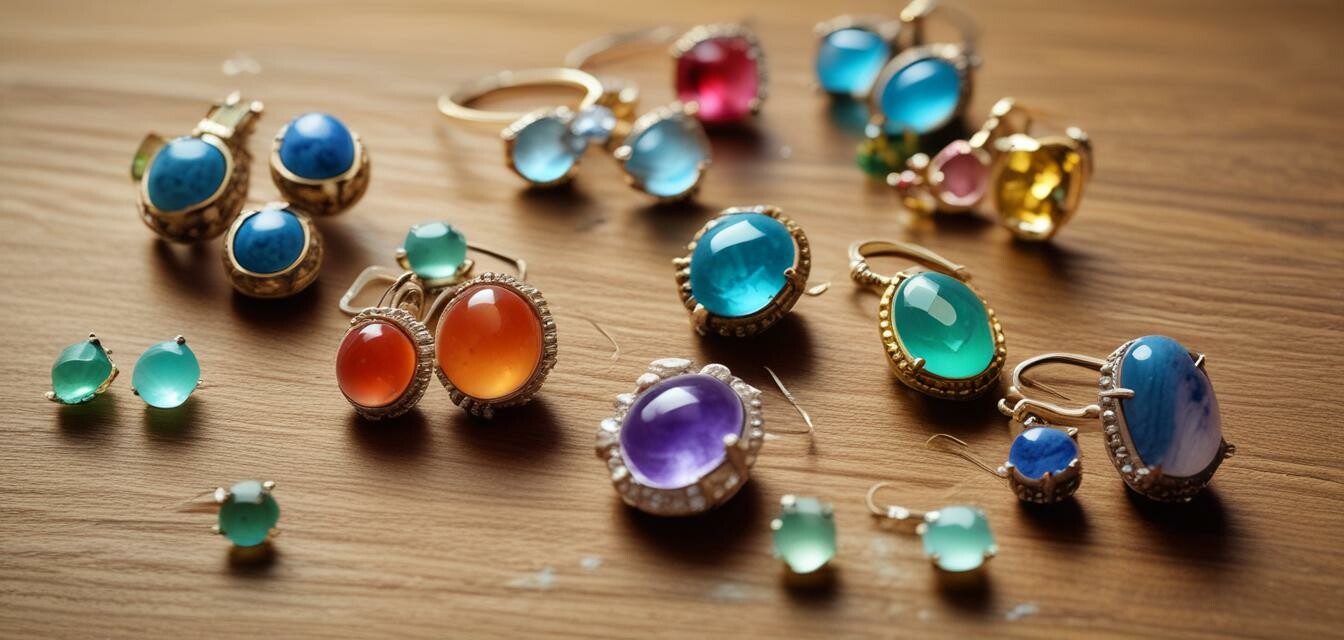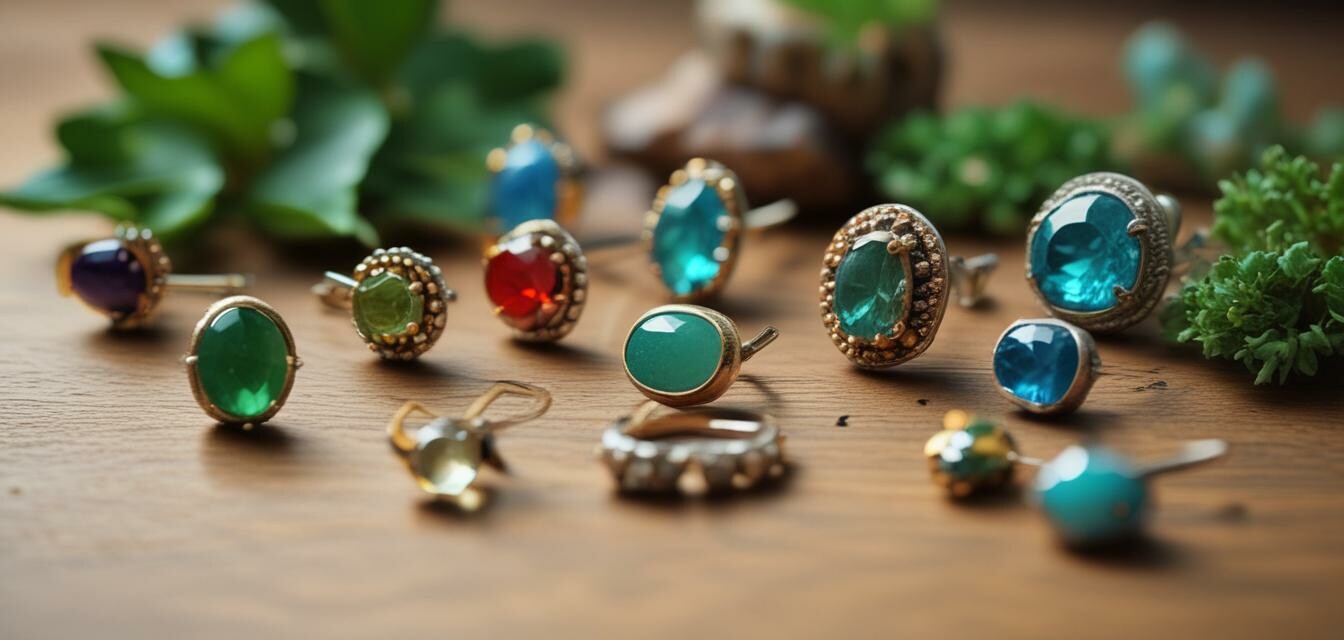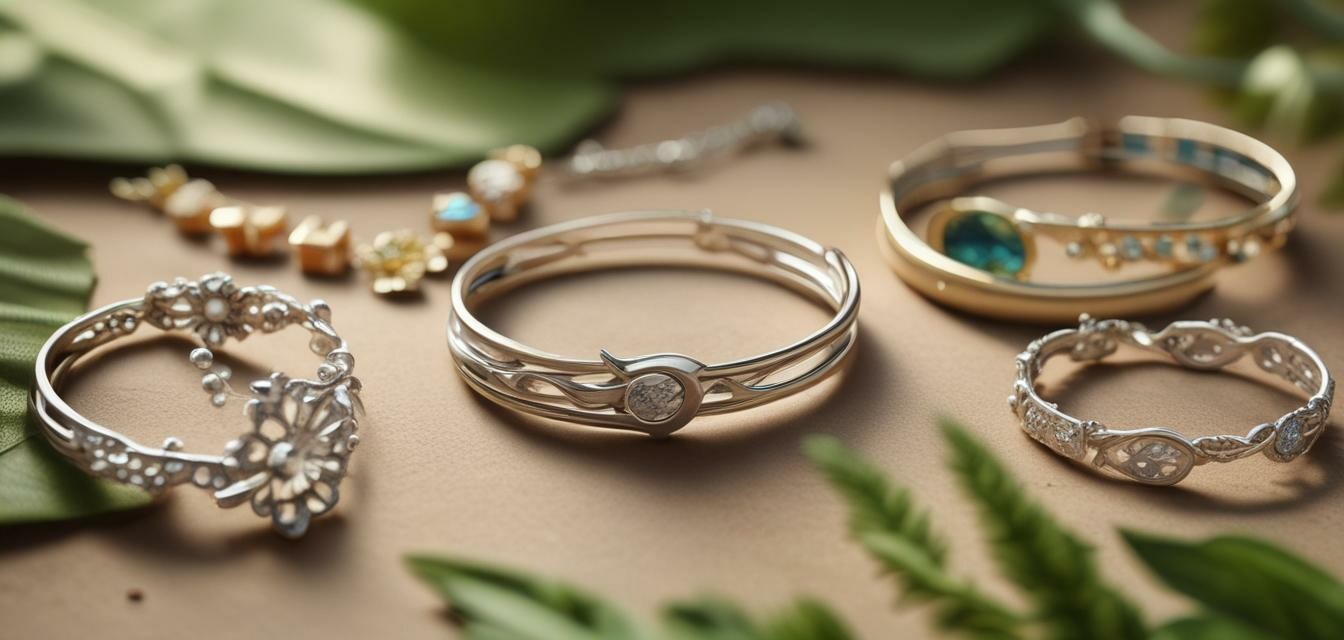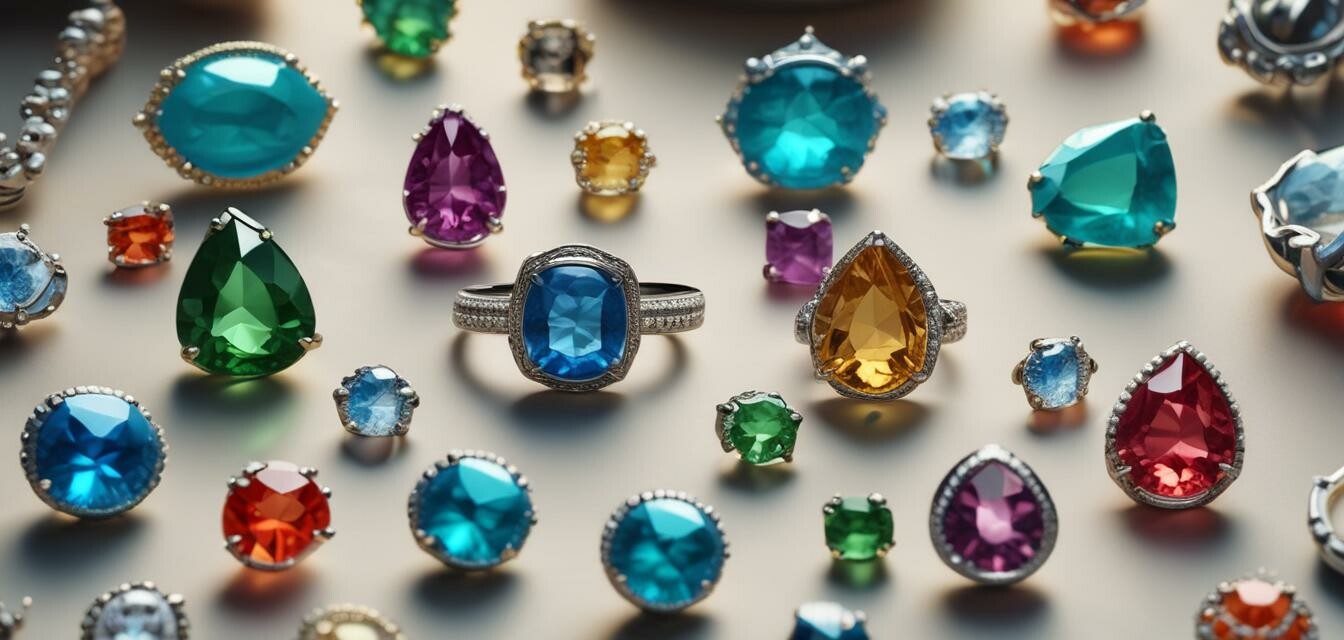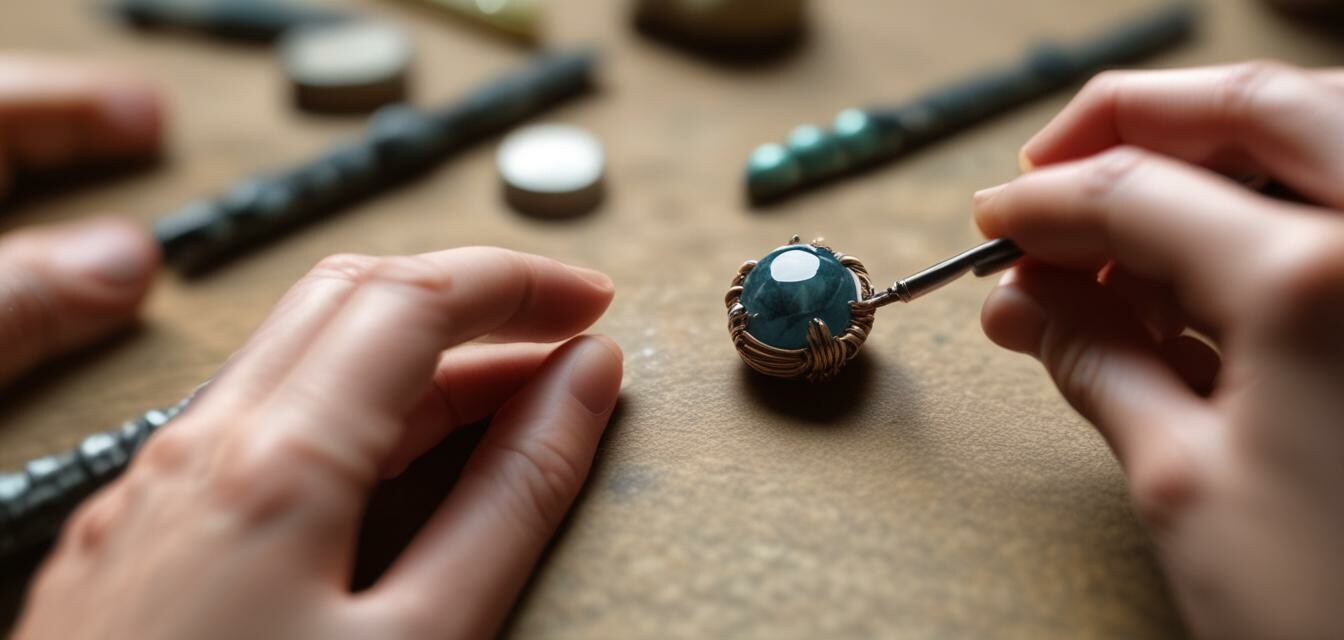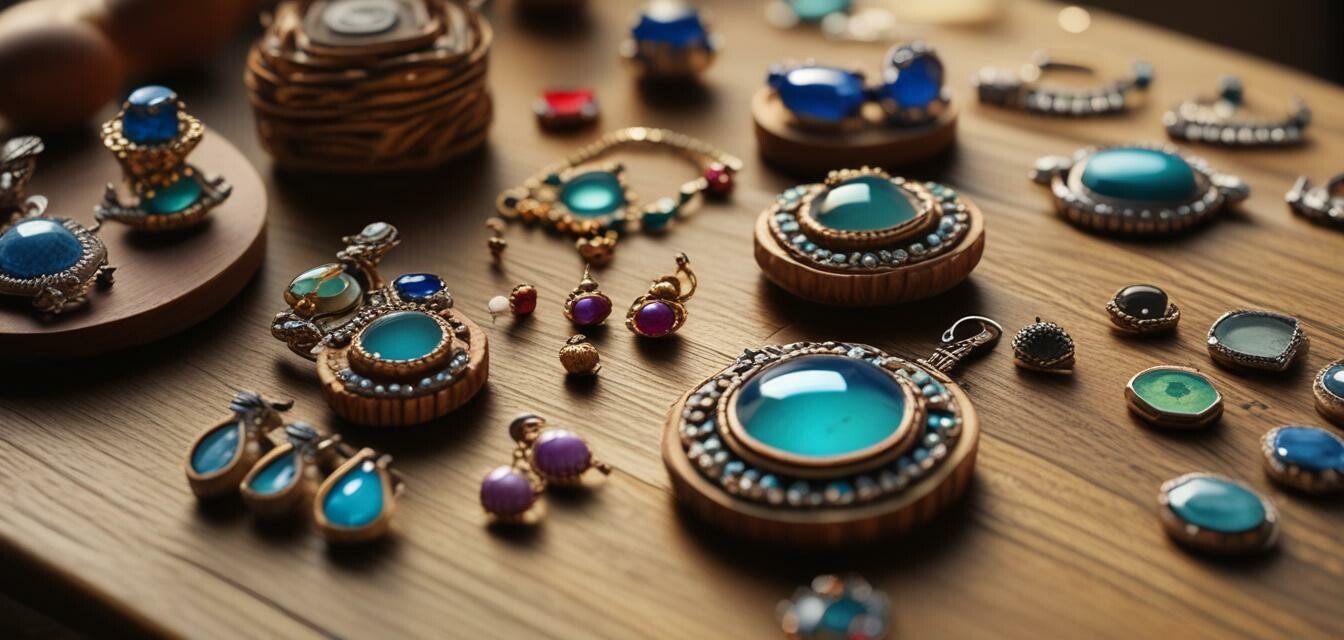
Popular gemstones for ethical earrings
Key Takeaways
- Ethical earrings are made from sustainably sourced gemstones.
- Popular gemstones include amethyst, turquoise, labradorite, and more.
- Understanding the origins of gemstones can enhance your appreciation of jewelry.
- Choosing ethical jewelry supports artisans and eco-friendly practices.
- Explore various styles and designs available in ethical earrings.
In today's world, consumers are more conscious about the impact of their purchases, especially when it comes to jewelry. Ethical earrings not only look beautiful but are also made from responsibly sourced gemstones. This article will explore some popular gemstones used in ethical earrings and their unique origins.
Understanding ethical gemstones
Ethical gemstones are sourced from mines that prioritize environmental sustainability and fair labor practices. This means that the artisans who create jewelry from these stones are paid fairly, and mining practices do not harm the environment. Let’s take a look at some of the most popular gemstones utilized in ethical earrings.
1. Amethyst
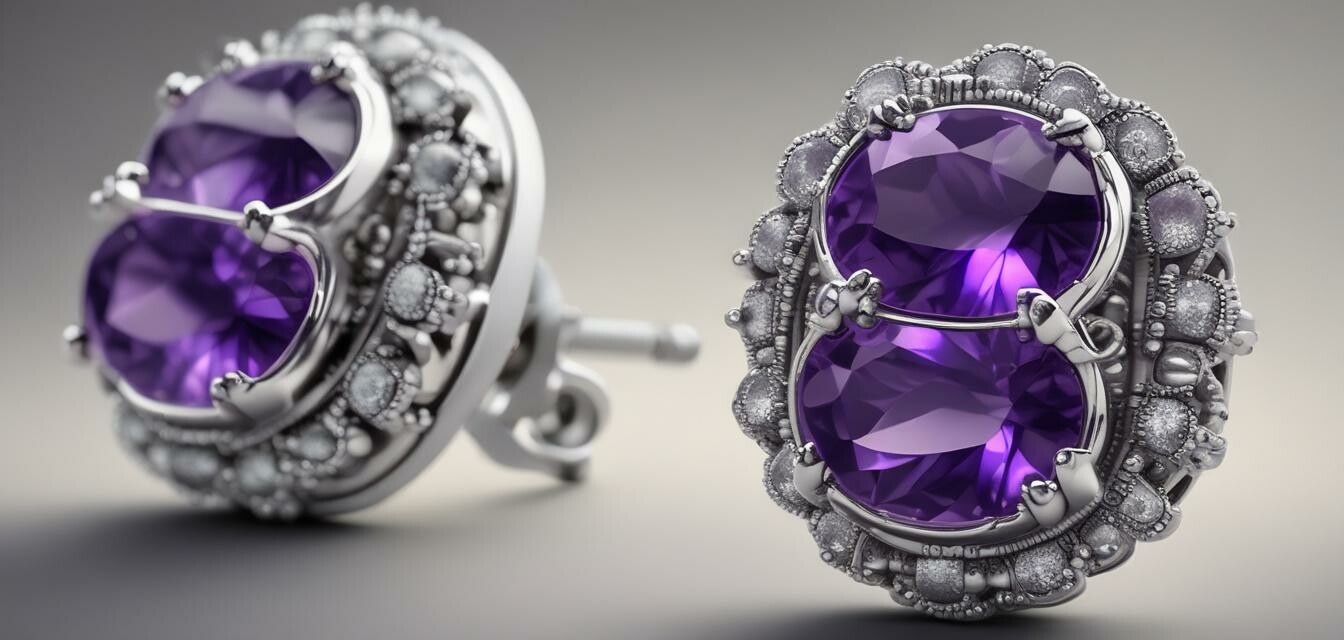
Amethyst is a beautiful purple quartz that is both popular and versatile. It is often associated with tranquility and clarity.
2. Turquoise

Turquoise is known for its striking blue-green color and has been prized for centuries for its beauty and cultural significance.
3. Labradorite
Labradorite is famous for its iridescent optical effects, often displaying a stunning play of colors. This gemstone is believed to enhance intuition and promote self-discovery.
4. Citrine
Citrine, a yellow variety of quartz, is associated with positivity and abundance. Its warm hues make it a popular choice for cheerful and vibrant earrings.
5. Moonstone
Moonstone is cherished for its ethereal glow and is often linked to emotional balance and harmony.
Comparison of popular gemstones
| Gemstone | Color | Origin | Meaning |
|---|---|---|---|
| Amethyst | Purple | Brazil, Uruguay | Peace, balance |
| Turquoise | Blue-Green | Iran, USA | Protection, healing |
| Labradorite | Gray with iridescent | Canada, Madagascar | Transformation, intuition |
| Citrine | Yellow | Brazil, Spain | Abundance, joy |
| Moonstone | White with glow | India, Sri Lanka | Emotional balance |
Why choose ethical earrings?
Choosing ethical earrings means supporting sustainable practices in the jewelry industry. Not only do you get beautiful adornments, but you also contribute to the welfare of artisans and their communities. Here are some reasons to consider ethical earrings:
- Support local artisans and communities.
- Promote eco-friendly practices.
- Reduce environmental impact of mining.
- Encourage fair labor conditions.
Styles of ethical earrings
Ethical earrings come in a variety of styles, including:
- Hoops
- Studs
- Dangles
- Chandelier earrings
Popular styles and their features
| Style | Features | Best For |
|---|---|---|
| Hoop Earrings | Round, often larger in size | Casual and formal wear |
| Stud Earrings | Classic and understated | Everyday use |
| Dangle Earrings | Long and elegant | Evening events |
| Chandelier Earrings | Intricate designs | Special occasions |
Where to buy ethical gemstone earrings
Many online platforms specialize in ethical jewelry. For more information on specific types of jewelry, check out our product categories:
- Artisan Rings
- Eco-Conscious Jewelry Sets
- Eco-Friendly Bracelets
- Ethical Stone Earrings
- Sustainable Necklaces
- Upcycled Jewelry
Conclusion
Choosing ethical gemstones for earrings not only enhances personal style but also supports sustainable practices and ethical labor. By understanding the origins and meanings of these gemstones, you can make informed choices that resonate with your values.
Pros
- Beautiful and unique designs.
- Supports sustainable practices.
- Fair labor conditions for artisans.
- Variety of styles to choose from.
Cons
- May be more expensive than non-ethical options.
- Limited availability depending on location.
Tips for beginners
- Research the origins of the gemstones.
- Look for certifications that indicate ethical sourcing.
- Choose designs that suit your personal style.
- Consider the durability of materials used.
